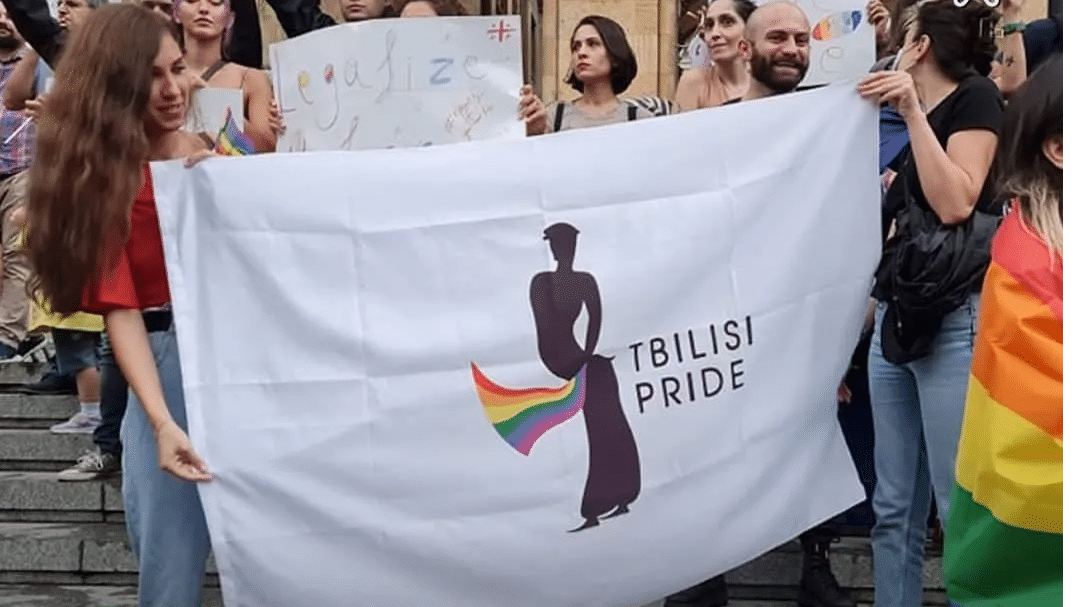Thousands of people turned up in a rally on Tuesday in the
Georgian capital Tbilisi to denounce attacks on the LGBTQ community that forced
activists to cancel a planned Pride march and shocked the whole nation.
In a country where the powerful Orthodox Church has had a
record of clashing with Western-leaning governments over progressive social
issues, Pride events are still very much controversial.
On Tuesday evening, several thousand demonstrators gathered
outside parliament to denounce the violence that shocked the pro-Western
country and sparked condemnation from the United States and the EU.

Many at the silent demonstration waved EU and rainbow flags.

Police cordoned off the area to protect demonstrators from
some 200 anti-LGBTQ activists, who staged a counter-rally nearby and tried to
breakthrough police barriers.

“We can’t tolerate in this country any form of violence
targeting minorities. Homophobia doesn’t belong to the 21st century ” AFP
quoted art historian Lili Chumburidze as saying.
Another demonstrator said: “We are here to tell the
government that human rights must be ensured for everyone.”
Prime Minister Irakli Garabishvili has faced strong
criticism from the opposition and rights activists after he spoke out against
holding the Pride march, describing it as “unacceptable for a large segment of Georgian society”.
Hundreds of anti-LGBTQ protesters including activists from a
small pro-Russian party had on Monday removed a European Union flag outside
parliament and attacked dozens of journalists covering events at several
locations. Many were hospitalised with bruises and fractures. LGBTQ activists
called off a planned Pride march as a result of the assault. This came hours
after the prime minister denounced the event.
Pride organiser Giorgi Tabagari told AFP he suspected
“the country’s secret service coordinated the attacks”.
Critics have accused the ruling Georgian Dream party
government of tacitly supporting homophobic and nationalist groups.
These groups are seen as supporters of the ruling party and
have staged protests against pro-Western opposition parties.
Georgia decriminalised homosexuality in 2000 and adopted
anti-discrimination laws in 2006 and 2014.






